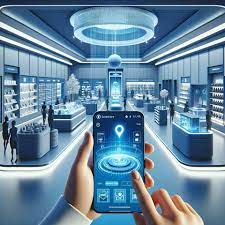Intelligent building solutions, empowered by the latest advancements in IoT and smart technology, are transforming commercial and residential buildings into dynamic spaces that respond intelligently to the needs of their occupants. These connected building solutions integrate various technologies to optimize building operations, enhance occupant comfort, and minimize environmental impact.
Enhanced Automation and Control
Smart HVAC Systems: Intelligent solutions for heating, ventilation, and air conditioning use sensors and IoT technology to adjust settings in real-time for optimal temperature and air quality. This not only enhances occupant comfort but also reduces energy consumption by up to 30%, depending on the building’s usage patterns and external weather conditions.
Automated Lighting Systems: Lighting systems equipped with motion sensors and ambient light detection adjust the lighting levels based on occupancy and natural light availability. This technology can lead to significant reductions in energy usage, often by as much as 25%.
Improved Energy Efficiency
Energy Monitoring and Management: Intelligent buildings incorporate systems that monitor energy consumption in real-time and provide actionable insights. These systems can identify inefficiencies and suggest changes that can reduce energy costs by 15-20%.
Renewable Energy Integration: Modern intelligent building solutions are designed to seamlessly integrate with renewable energy sources such as solar panels and wind turbines, further reducing reliance on non-renewable energy and decreasing carbon footprints.
Advanced Security Features
Integrated Security Systems: These buildings feature advanced security measures including biometric access controls, surveillance cameras with facial recognition, and real-time monitoring systems. Enhanced security protocols protect against unauthorized access and ensure the safety of all occupants.
Emergency Management: Intelligent solutions enable automated emergency responses. In the event of a fire or other emergency, systems can control lighting and guide occupants to safety, manage HVAC systems to contain smoke, and automatically notify emergency services.
Enhanced Occupant Experience
Personalized Environments: Occupants can personalize their living or workspace environments using apps or voice commands to control temperature, lighting, and even window shades, which significantly improves comfort and productivity.
Health and Wellness Monitoring: Advanced systems monitor air quality and adjust ventilation accordingly to maintain optimal conditions, reducing pollutants and allergens. Some systems also monitor noise levels to ensure they remain within comfort zones.
Sustainability and Eco-Friendliness
Resource Conservation: Intelligent building solutions optimize the use of water and electricity, significantly reducing waste through smart sensors and predictive analytics.
Green Building Compliance: Many intelligent building solutions are designed to comply with green building standards like LEED or BREEAM, aiding in obtaining certifications that can increase building value and attract eco-conscious tenants.
Conclusion
Innovations in intelligent building solutions offer tremendous benefits by integrating automation, energy efficiency, security, and personalized control into everyday building operations. These technologies not only make buildings smarter and more responsive but also contribute significantly to environmental sustainability and enhanced occupant well-being. These solutions represent the future of building management, where efficiency and occupant satisfaction go hand in hand.

